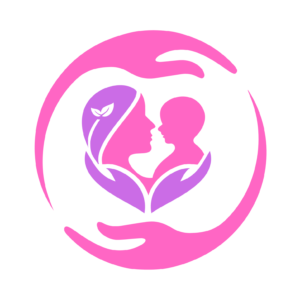Staying hydrated is one of the simplest, yet most powerful, things a pregnant woman can do for her health and her baby’s development. During pregnancy, your body works overtime. It’s producing extra blood, forming amniotic fluid, supporting fetal growth, and helping with digestion. All of these changes increase your need for water.
In my practice as a gynecologist here in Pakistan, I often see expectant mothers underestimate the importance of hydration, especially during the summer months or Ramadan. In this article, I’ll explain why hydration matters, signs of dehydration, and the best, practical ways to stay well-hydrated throughout your pregnancy, including a patient story from one of my recent cases.
Why Hydration Is Crucial During Pregnancy
Water plays a vital role in every stage of pregnancy. It helps:
- Form the amniotic fluid that surrounds your baby
- Produce extra blood volume
- Carry nutrients to your baby
- Flush out toxins and waste through urine
- Prevent constipation and urinary tract infections
- Maintain healthy skin and reduce swelling
A lack of hydration can lead to fatigue, headaches, constipation, low amniotic fluid, and even preterm contractions in some cases.
How Much Water Do You Need?
The general recommendation is about 8–12 glasses of water per day (roughly 2.5–3 liters), but this can vary based on your body size, activity level, and weather conditions.
During hot weather or if you’re vomiting due to morning sickness, you may need even more fluids to stay balanced.
Patient Experience: Fatigue Solved with Simple Hydration
A patient of mine, Sana, a 32-year-old teacher from Lahore, came to me in her second trimester, complaining of persistent headaches, fatigue, and dizziness. After running routine tests and finding everything else normal, I asked about her water intake.
She admitted that due to her busy teaching schedule, she often forgot to drink water, only managing about 3–4 glasses a day.
We worked together on a simple hydration plan. Within a week, her headaches reduced, and her energy levels improved dramatically. It was a clear reminder that something as basic as water can make a big difference.
Effective and easy tips for hydration during pregnancy
Here are some effective and easy-to-follow tips I recommend to my pregnant patients:
1. Start Your Day With Water
Drink a glass of water as soon as you wake up. This helps kickstart digestion and rehydrate your body after a night’s rest.
2. Keep a Water Bottle With You
Invest in a 1-liter reusable water bottle and carry it wherever you go at home, at work, or during errands. Sip regularly instead of waiting to feel thirsty.
3. Infuse Your Water
If plain water feels boring, try adding natural flavor with:
- Lemon or lime slices
- Mint leaves
- Cucumber
- Orange slices
These not only add taste but also provide a small vitamin boost.
4. Eat Water-Rich Foods
Add hydrating foods to your diet such as:
- Watermelon
- Cucumber
- Oranges
- Strawberries
- Lettuce
- Coconut water (natural and unsweetened)
These help supplement your fluid intake while providing essential nutrients.
5. Set Reminders
Use your phone to set hydration alarms every 1–2 hours, especially if you’re busy or tend to forget.
6. Monitor Your Urine Color
Your urine should be pale yellow. Dark yellow or strong-smelling urine is a sign you need more fluids.
7. Stay Cool in Hot Weather
If you’re living in areas like Karachi or Multan, where temperatures rise significantly, staying indoors during peak hours and increasing fluid intake is critical to avoid heat-related dehydration.
What to Avoid
- Caffeinated drinks (like tea or cola): These can increase urine output and contribute to dehydration.
- Sugary juices or sodas: They can cause blood sugar spikes and unnecessary weight gain.
- Artificial sweeteners: Best avoided unless advised by your doctor.
Final Thoughts
Hydration during pregnancy isn’t just about quenching thirst. It’s about supporting your baby’s development and your body’s changing needs. It’s simple, affordable, and extremely effective.
If you’re unsure whether you’re drinking enough water or facing symptoms like fatigue, dry skin, or constipation, speak to your gynecologist. Often, the solution is as easy as reaching for another glass of water.
Fell free and book a consultation, for personalized advice and pregnancy care.
Dr. Sofia Manzoor (Gynecologist and Obstetrician)
Contact: (042) 111 627 663
Location: Masood Hospital, Kalma Chowk, Lahore
